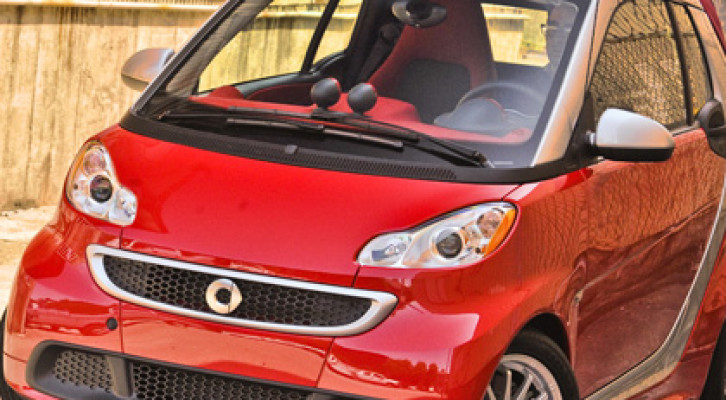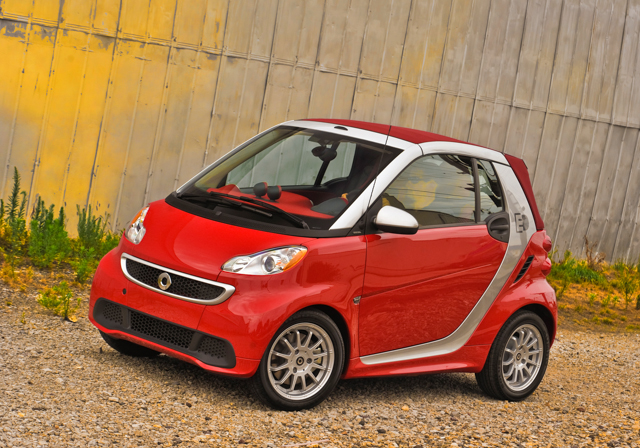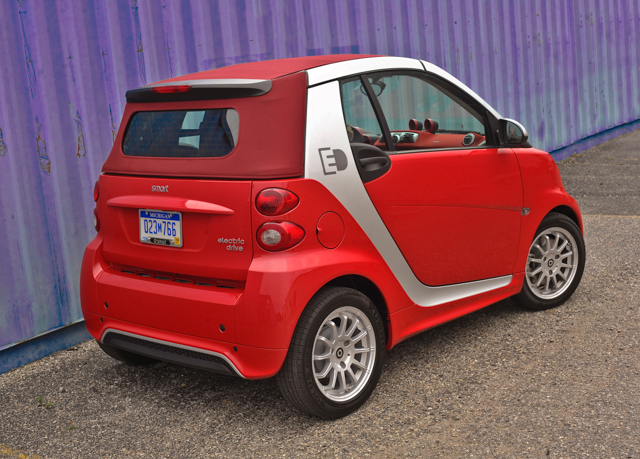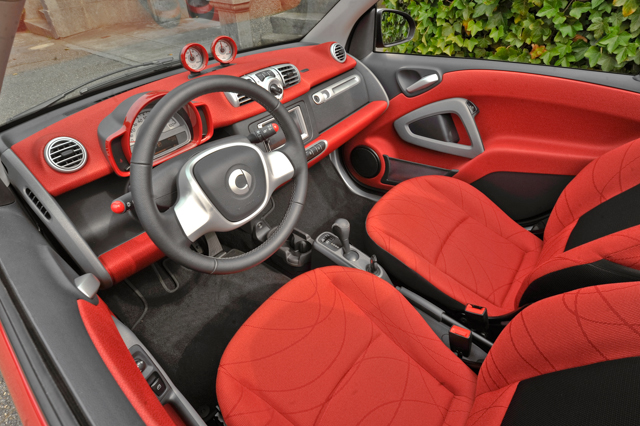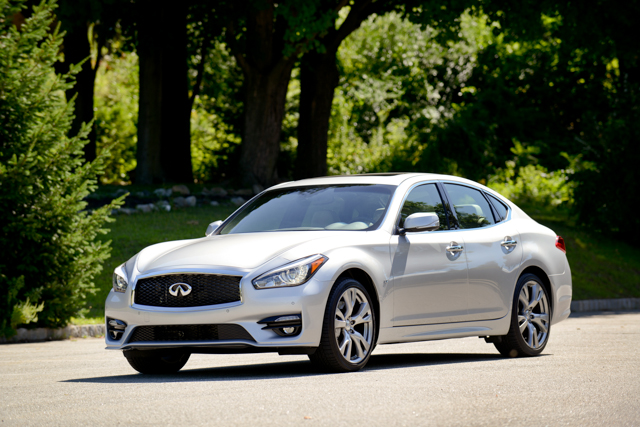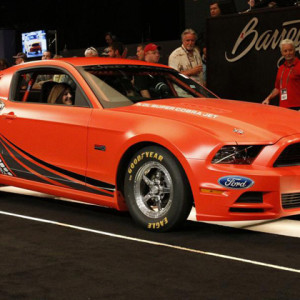Electric cars are just beginning to graduate beyond the stage where most of them are special-needs automobiles, so they tend to be somewhat fussy in attitude. Full-electrics such as the Nissan Leaf and the Ford Focus Electric are concentrating on being as easy to use and unobtrusive as possible, to offset the culture shock of rolling down the road in a vehicle that makes as much noise as a golf cart. Electric cars are polite.
The smart fortwo electric drive is a bit different. It’s friendly, but the cheekiness endemic in driving a car that’s basically the cab of a pickup truck sans hood and cargo box is amped up to 11 when you add a torquey electric powertrain. Seriously, this little car’s not afraid of anything. Power is provided by a magneto-electric motor and a single-gear transmission, and the juice comes from a lithium-ion battery pack that offers better reliability and a longer life than comparable nickel-metal hydride batteries. The motor produces 35kW of continuous power with a maximum of 55kW, and offers 96 pound-feet of torque. With all that torque on tap and barely a ton of weight to move around, the smart fortwo electric drive feels sportier than the gasoline version. Stomp the throttle and this little car just goes, without hesitation. 0-60 takes a respectable 12 seconds, and the fortwo electric drive tops out at 78 mph. The electric fortwo has an advantage over the gas version in that it lacks the twitchy semi-automated transmission that gives many buyers pause.
Underneath the car, the MacPherson struts up front and the DeDion rear suspension are unchanged from the gasoline version. The smart fortwo is the sort of car whose buyers know what they’re getting into, so the stiff suspension and frequently bouncy ride are par for the course. If that’s not your cup of tea, look to the Leaf or Focus Electric. This is no sports car, though it has a little-dog tenaciousness that’s charming — and handy if you need to pass a dump truck on a narrow rural road. But really, with a range of 75-90 miles, it’s unlikely that the fortwo electric drive is going to find itself out in farmland very often. Anti-lock brakes and electronic stability control are standard.
The brakes are regenerative, capturing energy and charging the battery during deceleration. This improves battery life during stop and go traffic. Plugged into a 240-volt outlet at home, the smart fortwo electric drive will charge in under four hours.
The smart’s styling is another component of its uniqueness. The stumpy city car’s designed for easy operation in urban environments. There’s not much tweaking done to the design, because the fortwo was initially designed with electric propulsion in mind. The battery pack fits under the front floor where the gas tank would normally reside, and the rear-mounted gasoline engine is neatly replaced by the electric motor. This means that the fortwo electric drive’s safety also remains the same. The electric smart is available as a coupe or convertible and can be personalized with the “smart Expressions” program that offers a nearly limitless supply of colors and car wraps. A panoramic polycarbonate roof is available on the coupe.
Like the exterior, the interior largely is the same as that of the gasoline-powered smart fortwo. The tachometer is replaced by a power meter gauge, and there’s a real-time power draw and regeneration meter. This little car is well-equipped, offering rain-sensing headlights, Bluetooth phone connectivity, and a surround-sound audio system with a subwoofer.
To make the fortwo electric drive agreeable to live with and to catch the attention of technophiles, a range of smartphone apps are available. The fortwo electric drive can communicate with smart’s homepage through the power lines when it’s being charged, sending power usage and performance data to the owner. It also can check on power usage and schedule itself to charge only during non-peak hours, when that’s less expensive.
There’s not much in the way of gray area when it comes to opinions about this car. Like the gasoline-powered smart fortwo, you’ll know right away if this car is for you. If it is, the electric drive offers improved performance and stellar fuel economy at the cost of a dramatically reduced range. An if the smart fortwo electric drive is definitely not for you, that’s what the Nissan Leaf and the Ford Focus Electric are for. Pricing of the fortwo electric drive starts at $25,000, and the cabriolet retails for $28,000.

